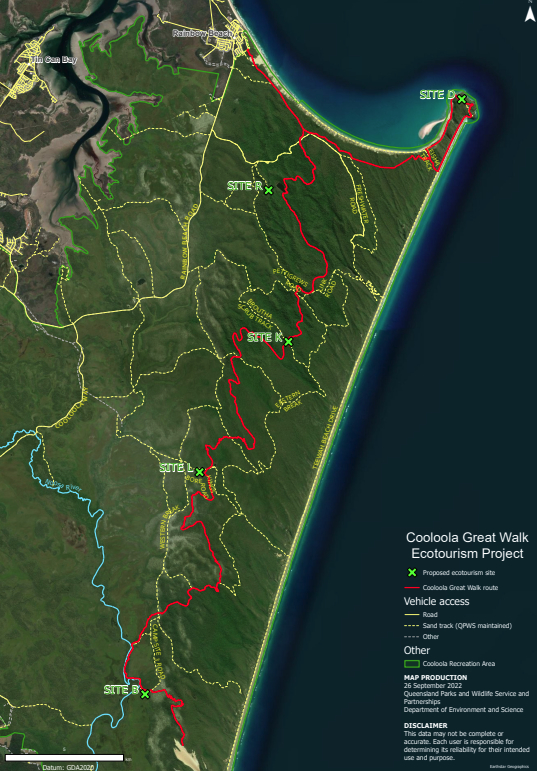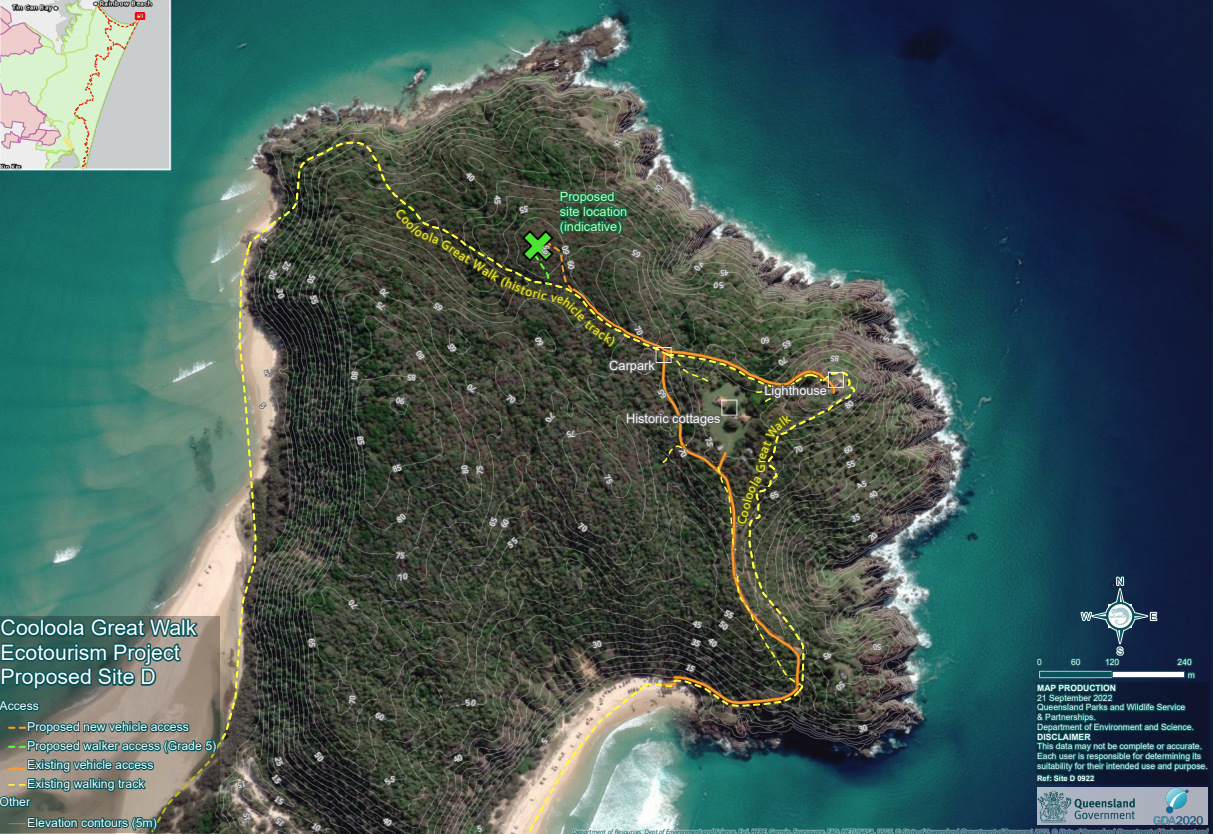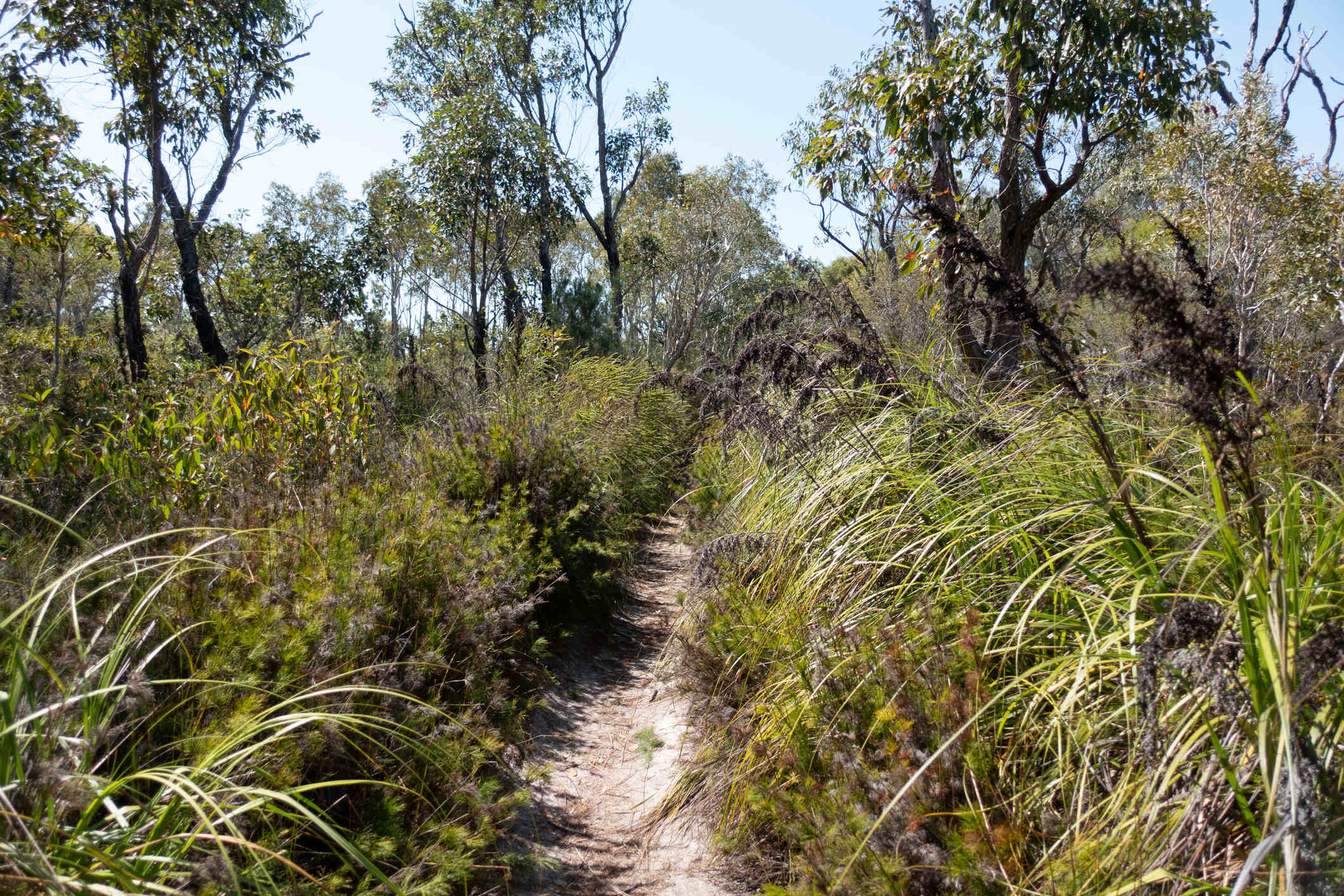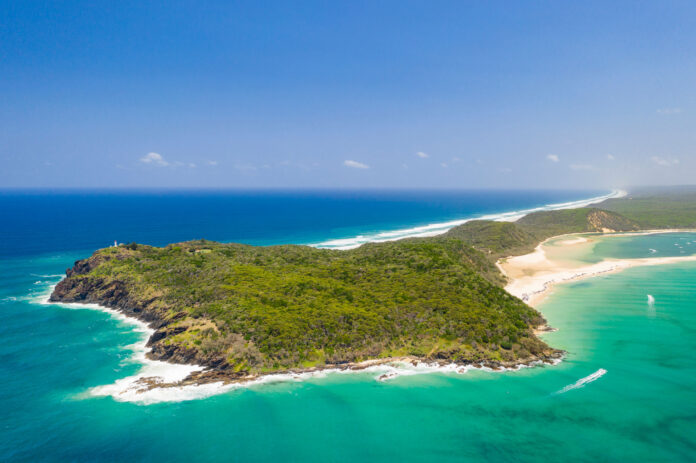Environmental activists are ready to “stand up” against a bold ecotourism proposal, at a public gathering at Double Island Point on Saturday.
Community action group Keep Cooloola Cool will host the event in opposition to the Cooloola Great Walk Ecotourism Project.
The group has slammed the scheme as a threat to the Great Sandy National Park but stakeholders, including the state government and accommodation provider CABN, said it would bolster eco-tourism and there would be minimal impact on the environment.
The proposal includes five accommodation sites along the existing 102km Cooloola Great Walk, including one site with 10 cabins at the tip of Double Island Point.
Keep Cooloola Cool spokesperson Matthew Noffke said plans should be scrapped.
“The national park should be free from development and commercial pressures,” he said.
“The proposal is an assault on the very idea of what a national park should be.
“It does not benefit the community and it certainly does not benefit the environment. It has no place in a national park and the state government should abandon the proposal immediately.”
Mr Noffke said more than 15,000 people had signed an online petition opposing the initiative, and he believed that more than 2500 objections had been sent to the state government.

Keep Cooloola Cool, which started in response to the proposal in 2021, consists of concerned community members. They have attended community events and communicated with members of parliament, council, and environmental groups.
“We are disappointed with how the majority of them have responded,” Mr Noffke said.
“We will continue to give the community a voice for as long as it takes for national parks to be properly protected.”
He said the area was a haven for flora and fauna.
“The proposed development sites and access roads are in the most sensitive and delicate ecosystem types that we have on the Coast,” he said.
Mr Noffke also believed the proposal was unfair on the traditional owners of the land.
“Is this the best that we can do for First Nations people and the environment?” he said.

But a CABN spokesperson said the proposal would have limited impact on the surrounds and cultural heritage.
“Each site for the proposed off-grid, eco-friendly CABNs has been carefully considered and selected in partnership with the Kabi Kabi and the Queensland departments of Environment and Science and Tourism, Innovation and Sport to minimise the accommodation’s ecological footprint, respect cultural heritage, and allow visitors to enjoy an area of astounding natural beauty,” they said.
They said the eco-camps would be “carefully designed to be as low-impact and sustainable as possible, following detailed environmental assessments on the ecology and biodiversity of the region.”
CABN, an Australian company specialising in eco-friendly accommodation, was the preferred tender to deliver the infrastructure along the walk.
The spokesperson told Sunshine Coast News in May that the project would bolster eco-tourism in the region.
“The walking experience will offer guests a unique opportunity to engage and immerse themselves in the iconic Cooloola region, learning about the Indigenous, cultural significance of the land through guided walking tours,” they said.
“It will increase sustainable tourism in the region and connect domestic and international visitors with the Cooloola Great Walk.
“The Kabi Kabi will have complete oversight and development of the cultural and historical education throughout the project.

A Department of Tourism, Innovation and Sport spokesperson said all facets of the proposal were being examined.
“The Queensland Government continues to work collaboratively with those involved with the proposed project to connect Noosa North Shore and Rainbow Beach,” they said.
“This includes the project proponents CABN as well as the Kabi Kabi people, the Noosa Parks Association, and the local and federal government agencies.
“Several of the key planning steps and approvals for the project have already been finalised, including those relating to the Indigenous Land Use Agreement.
The DES told Sunshine Coast News earlier this year that site selection “included ecological impacts, cultural heritage impacts, safety impacts and tourism potential” and the cabins would need to meet strict requirements.
“The design, construction and operational aspects of the proposed accommodation must meet the requirements of DES.”
Consultation on the proposal has been held since 2019, and the department has made some changes to the plans due to community concerns, including the relocation of two sites to “less ecologically sensitive areas.”
Noosa Council said the proposal was largely driven by the state government and they would not comment as they had not received a development application.
Construction of eco-accommodation facilities is expected to be completed by early 2024, depending on final approvals being granted.
Like stories that inform, connect and celebrate the Sunshine Coast? So do we. Join an independent local news revolution by subscribing to our FREE daily news feed at the bottom of this article.





